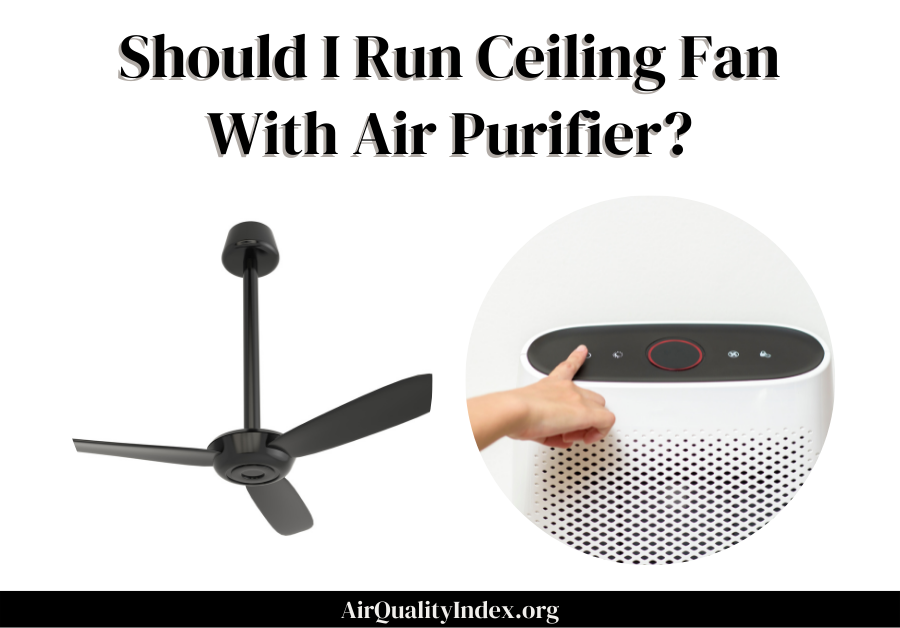There’s nothing better than being surrounded by fresh air and a working fan.
As a result, I began to wonder whether or not I should pair my air purifier with a ceiling fan.
I began to research, and here’s what I found out:

On low, ceiling fans boost the performance of air purifiers. It will be easier for the air purifier to eliminate contaminated air. While they can be combined, they’re better used separately.
Should I Run Ceiling Fan With Air Purifier?
If you’ve read this far, you should have a good idea of the answer to that question. However, in order to drive home the point, it will be brought up a second time. Should I Run Ceiling Fan With Air Purifier? Doing this is a bad idea.
If you think it will have a dual effect of cleaning and circulation, it can be very tempting to do this. However, this isn’t always the case. It’s really unnecessary.
Also Read: Should I Run Ceiling Fan With Air Purifier?
Many people are unaware that their ceiling fan is actually drawing in fresh air and distributing it throughout the room. If your fan’s filters are contaminated, it will keep blowing out the same stale air.
While running them both at the same time in a tiny bedroom won’t do much to improve air quality, it will lead to some conflict between a fan and an air purifier.
On the other hand, if you use them together in larger rooms or areas where there’s more pollutants to filter, they should function effectively. If you have a large room, a ceiling fan will help circulate cleaner air better.
Which One Uses More Electricity?
Electricity is used in a variety of ways by ceiling fans and air purifiers. It takes a lot of power to run a ceiling fan because it is always spinning. In contrast, an air purifier only consumes power when its filters are operating. You may not be getting the most out of a ceiling fan if you are trying to save electricity. As a result of its efficiency, air purifiers save energy.
Can Ceiling Fans Remove Dust And Pollens Like Air Purifier?
Pollen and dust are not truly removed from the air by ceiling fans. Some of these particles may be moved around, but none will be removed. An air purifier is a better alternative than a fan if you’re trying to get rid of these allergies. There are several contaminants in the air that an air purifier can remove.
Difference between Air Purifier and Ceiling Fan
The main difference between an air purifier and a fan is that an air purifier tries to clean the air by getting rid of things like dust and allergens. On the other hand, the fan tries to move your air around.
Separating clean air from unclean air is the goal of air purifiers. An ionization method is used to eliminate allergens from the air in air purifiers. It is because of a purifier that the air is cleaner.
As for fans, they’re not designed to filter your air. A fan is only concerned with circulating the air in your room, regardless of what kind of air it is. Fans can move any kind of air, whether it’s clean or dirty, particle-free or not.
Do Fans Help Air Purifiers?
As it turns out, there isn’t much help a fan can provide an air purifier.
It is true that you will need some airflow in order to improve circulation in your air purifier’s filtering unit.
Indoor air can be cleaned without the aid of a mini-tornado.
Dust, grime, and other contaminants can be scrubbed away by a light breeze.
This is especially true if the floors and soft things (like furniture, blankets, and so on) are kept clean.
Final Note
Should I Run Ceiling Fan With Air Purifier?
With the fan and air purifier both running, you could be tempted to believe that your air is cleaner and fresher as a result. It’s clear from this post hat it’s not the case, and it’s not necessary to run them together.



